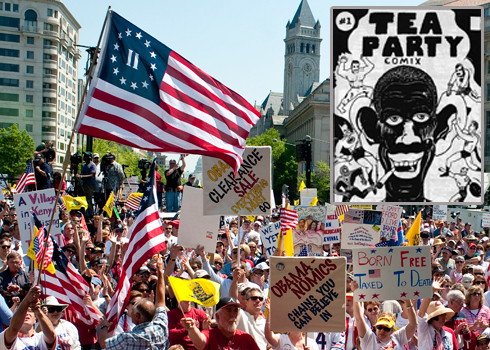References to the Boston Tea Party were part of
Tax Day protests held in the 1990s and before.
[21][72][73][74] In 1984,
David H. Koch and
Charles G. Koch of
Koch Industries founded
Citizens for a Sound Economy (CSE), a conservative political group whose self-described mission was "to fight for less government, lower taxes, and less regulation." Congressman
Ron Paul was appointed as the first chairman of the organization. The CSE lobbied for policies favorable to corporations, particularly tobacco companies.
[75]
In 2002, a Tea Party website was designed and published by the CSE at web address
www.usteaparty.com, and stated "our US Tea Party is a national event, hosted continuously online and open to all Americans who feel our taxes are too high and the tax code is too complicated."
[76][77] The site did not take off at the time.
[78] In 2003,
Dick Armey became the chairman of CSE after retiring from Congress.
[79] In 2004, Citizens for a Sound Economy split into
FreedomWorks, for 501c4 advocacy activity, and the
Americans for Prosperity Foundation. Dick Armey stayed as chairman of FreedomWorks, while David Koch stayed as Chairman of the Americans for Prosperity Foundation. The two organizations would become key players in the Tea Party movement from 2009 onward.
[80][81] Americans for Prosperity and FreedomWorks were "probably the leading partners" in the September 2009 Taxpayer March on Washington, also known as the "9/12 Tea Party," according to The Guardian.
[82]
https://en.wikipedia.org/wiki/Tea_Party_movement#History





